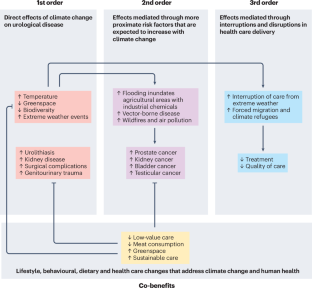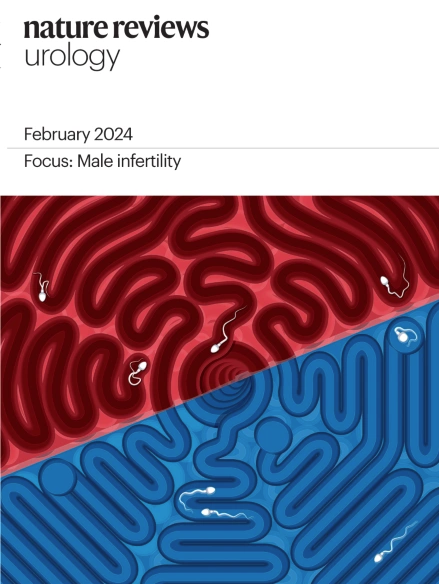变化中的星球上的泌尿科:气候变化与泌尿科疾病之间的联系
IF 12.1
1区 医学
Q1 UROLOGY & NEPHROLOGY
引用次数: 0
摘要
在气候变化的背景下,泌尿系统疾病及其各种形式的管理值得特别关注。关于泌尿系统癌症,气候变化可能会通过暴露于某些环境风险因素而增加癌症诊断的发病率和严重程度,同时破坏癌症治疗的提供和下游结果。关于良性泌尿系统疾病,关于气候相关的热浪、脱水、尿石症、肾损伤以及传染病和媒介传播疾病的研究正在蓬勃发展。除了对疾病发病机制的潜在影响外,许多泌尿系统疾病患者接受高科技、资源密集型干预,如机器人手术,并需要多年的密集纵向评估。这些特征会产生相当大的碳足迹,产生大量废物,并可能导致与气候相关的天气事件的脆弱性。地球健康(人类健康和支持我们健康的自然系统)、气候变化和泌尿系统疾病之间存在联系,在人为气候变化时代,泌尿系统护理提供者面临许多挑战。研究、管理和卫生保健服务的后续步骤和优先事项包括确定卫生保健服务战略并确定其优先顺序,以尽量减少废物和碳排放,同时支持气候适应能力。这方面的例子包括支持远程医疗、限制低价值护理以及建设复原力,以尽量减少气候相关灾害的影响,为未来的挑战做好准备。本文章由计算机程序翻译,如有差异,请以英文原文为准。


Urology on a changing planet: links between climate change and urological disease
Urological diseases and their varied forms of management warrant special attention in the setting of climate change. Regarding urological cancers, climate change will probably increase the incidence and severity of cancer diagnoses through exposures to certain environmental risk factors, while simultaneously disrupting cancer care delivery and downstream outcomes. Regarding benign urological diseases, a burgeoning body of work exists on climate-related heat waves, dehydration, urolithiasis, renal injury and infectious and vector-borne diseases. Adding to the potential effect on disease pathogenesis, many patients with urological diseases undergo high-tech, resource-intensive interventions, such as robotic surgery, and entail intensive longitudinal assessments over many years. These features incur a considerable carbon footprint, generate substantial waste, and can introduce vulnerabilities to climate-related weather events. Links exist between planetary health (the health of humans and the natural systems that support our health), climate change and urological disease and urological care providers face many challenges in the era of anthropogenic climate change. The next steps and priorities for research, management, and health care delivery include identification and prioritization of health care delivery strategies to minimize waste and carbon emissions, while supporting climate resilience. Examples include supporting telemedicine, limiting low-value care, and building resilience to minimize impacts of climate-related disasters to prepare for the challenges ahead. Here, the authors describe the links between planetary health, climate change and urological disease, as well as some of the challenges and potential strategies for urological care providers in the era of anthropogenic climate change.
求助全文
通过发布文献求助,成功后即可免费获取论文全文。
去求助
来源期刊

Nature Reviews Urology
医学-泌尿学与肾脏学
CiteScore
12.50
自引率
2.60%
发文量
123
审稿时长
6-12 weeks
期刊介绍:
Nature Reviews Urology is part of the Nature Reviews portfolio of journals.Nature Reviews' basic, translational and clinical content is written by internationally renowned basic and clinical academics and researchers. This journal targeted readers in the biological and medical sciences, from the postgraduate level upwards, aiming to be accessible to professionals in any biological or medical discipline.
The journal features authoritative In-depth Reviews providing up-to-date information on topics within a field's history and development. Perspectives, News & Views articles, and the Research Highlights section offer topical discussions and opinions, filtering primary research from various medical journals.
Covering a wide range of subjects, including andrology, urologic oncology, and imaging, Nature Reviews provides valuable insights for practitioners, researchers, and academics within urology and related fields.
 求助内容:
求助内容: 应助结果提醒方式:
应助结果提醒方式:


